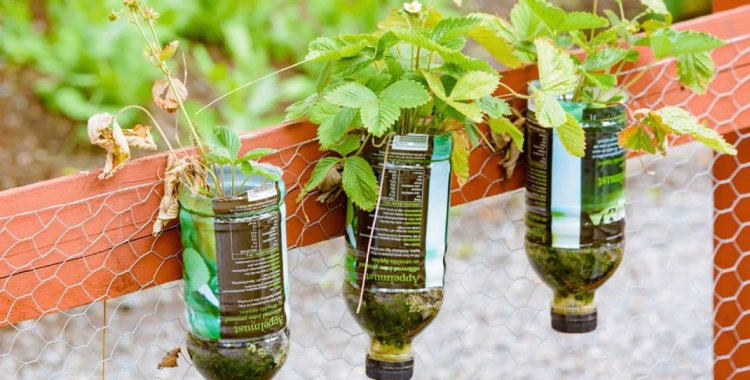The implementation of home gardens in urban areas becomes a good option for those interested in producing their own food and eating healthily. There is no need to have large spaces to produce, since you can take advantage of empty spaces in corridors, balconies, balconies and backyards and use containers such as tires, PET bottles, PVC pipes, buckets, cans, butter containers, flower beds. suspended wood, masonry planter, brass or plastic drum as the mini beds for planting.
This type of cultivation does not require great techniques or much knowledge, which according to Clemente and Haber (2012), just take into account the following factors that have the greatest influence on the development of plants: luminosity, soil management, fertilization and irrigation.
The planting of the crops can be done using seeds to do the right planting or else use the seedlings to later be transplanted into the soil. But it is important to note that not all cultures accept transplantation, as is the case with carrots, potatoes, cassava, parsley and garlic. Crops such as lettuce, cabbage, onions, tomatoes and peppers can be transplanted into the soil.
Cultivation should be done in places where there is sun, that is, under the shelter of the sun, in the morning or afternoon, approximately five hours, although some cultures require more hours of sun exposure to perform photosynthesis and complete the cycle of development.
The preparation of the soil is essential, and the soil must be well prepared, so that it remains well ventilated. To do this, preferably use dirt or virgin soil, usually of a red or yellowish color and of low fertility.
It is recommended to use organic matter for fertilizing the gardens, which can be products such as eggshell flour (can be made at home, grinding the dry eggshell), earthworm humus, wood ash and limestone, manure. corral or vegetable remains such as fruit peels.
As for irrigation, this should be taken into account at room temperature, when the weather is at a lower temperature, the amount of water absorbed by the plants is less, thus, the frequency of irrigation should be less. When temperatures are higher, water absorption is higher, and plants should be irrigated more frequently.
Tips to avoid pests and diseases
- Seeds and seedlings must be purchased in places that guarantee trust;
- Doing regular maintenance in the garden, this makes it possible to identify diseases and pests before they spread;
- Water in the early morning, and the excess water can dry out throughout the day or be absorbed by the soil. Water only the soil, not the leaves, which are exposed to damage caused by fungi, if they get wet;
- Maintain diversity, as some plants are enemies to pests that attack other species and vice versa;
- Natural pesticides are great options to control and eliminate parasites, especially rosemary, sunflower, garlic and onion, for producing repulsive odors.
All over the world, the agricultural sectors register a low production index, that is, due to the distance and social isolation. In this way, countries that depend on food imports, as in the case of Angola, face difficulties to stabilize their food sectors. However, due to the reality of the country, it is necessary to create viable alternatives for the subsistence of Angolan families.








